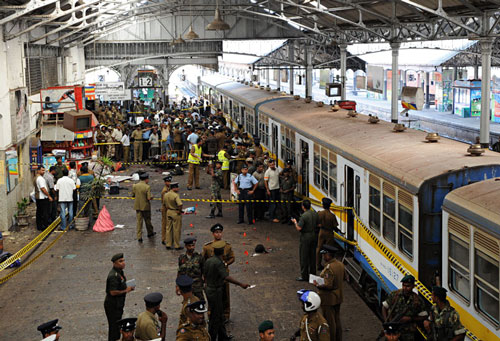Death toll in the Sri Lanka’s worst ever terrorist attack in a decade left 321 dead and 500 wounded after eight targeted bombings hit three churches and three five-star hotels on Easter Sunday.
GULF NEWS reported that Sri Lanka President Maithripala Sirisena on Tuesday said he expected to change the heads of the country’s defence forces within a day following their failure to prevent suicide bombs that killed more than 300 people, despite the fact they had prior information about the attacks.
“I will completely restructure the police and security forces in the coming weeks. I expect to change the heads of defence establishments within next 24 hours,” Sirisena said a televised address to the nation.
“The security officials who got the intelligence report from a foreign nation did not share it with me. Appropriate actions would have been taken. I have decided to take stern action against these officials,” the President said.
“All government schools across Sri Lanka will remain closed until April 29 in view of the security situation,” Education Minister Akila V. Kariyawasam announced on Tuesday.
The minister said all universities would also remain closed until further notice.
Sri Lankan intelligence officials were tipped off about an imminent attack by Islamist militants hours before a series of suicide bombings killed more than 300 people on Easter Sunday, three sources with direct knowledge of the matter said.
Three churches and four hotels were hit by suicide bombers on Sunday morning, killing 321 people and wounding 500, sending shockwaves through an island state that has been relatively peaceful since a civil war ended a decade ago.
Daesh claimed responsibility for the attacks on Tuesday, without providing evidence of its involvement.
Indian intelligence officers contacted their Sri Lankan counterparts two hours before the first attack to warn of a specific threat on churches, one Sri Lankan defence source and an Indian government source said.
Another Sri Lankan defence source said a warning came “hours before” the first strike.
One of the Sri Lankan sources said a warning was also sent by the Indians on Saturday night. The Indian government source said similar messages had been given to Sri Lankan intelligence agents on April 4 and April 20.
Sri Lanka’s presidency and the Indian foreign ministry both did not respond to requests for comment.

